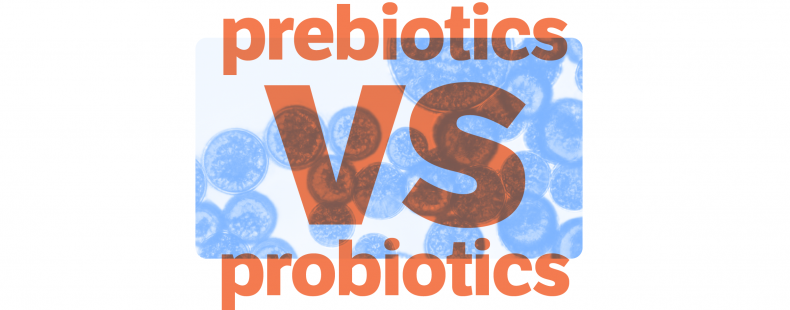⚡ Quick summary
Prebiotics are nondigestible parts of food, usually fiber, that feed the beneficial bacteria in your gut. Probiotics are live microorganisms, often called “good bacteria,” that add to or strengthen your gut microbiome. Eating both can support digestion, immunity, and overall health.
Prebiotics and probiotics sound similar, and both relate to gut health, but they’re far from interchangeable. In fact, they work hand in hand: One is helpful bacteria, while the other feeds that bacteria and helps it grow. Think of prebiotics like flowers that need water (probiotics) to flourish.
Both words share the root biotic, from a Greek term meaning “pertaining to life.” Prebiotics contains the prefix pre-, which means “before,” while probiotics uses the prefix pro-, generally meaning “in favor of.”
What are prebiotics?
Prebiotics are the food that your good bacteria thrive on. They’re plant fibers your body can’t digest, but gut microbes can. By feeding the beneficial bacteria, prebiotics help them grow and do their jobs more effectively.
Prebiotic-rich foods include:
- Fruits like bananas, apples, and watermelon
- Vegetables like asparagus, onions, garlic, and leeks
- Whole grains such as oats, barley, and quinoa
- Nuts and seeds like pistachios, flax, and chia
What are probiotics?
Probiotics are living bacteria and yeasts that help maintain a healthy balance in your gut. You can think of them as reinforcements to the “good” microbes already living in your intestines. These microbes help digest food, regulate inflammation, and even communicate with the immune system.
Common foods with probiotics include:
- Yogurt with “live and active cultures” on the label
- Kefir, a fermented milk drink
- Sauerkraut or kimchi (when unpasteurized)
- Tempeh and miso
Supplements are also widely available, but since probiotics are sensitive to heat and processing, labels often note whether they contain live cultures.
When they work together, prebiotics and probiotics can improve digestion and nutrient absorption, reduce gas and bloating, support immune function and help regulate bowel movements. Prebiotics and probiotics aren’t the same thing, but they’re partners in gut health. Prebiotics fuel the good bacteria, while probiotics provide more of those good bacteria.










